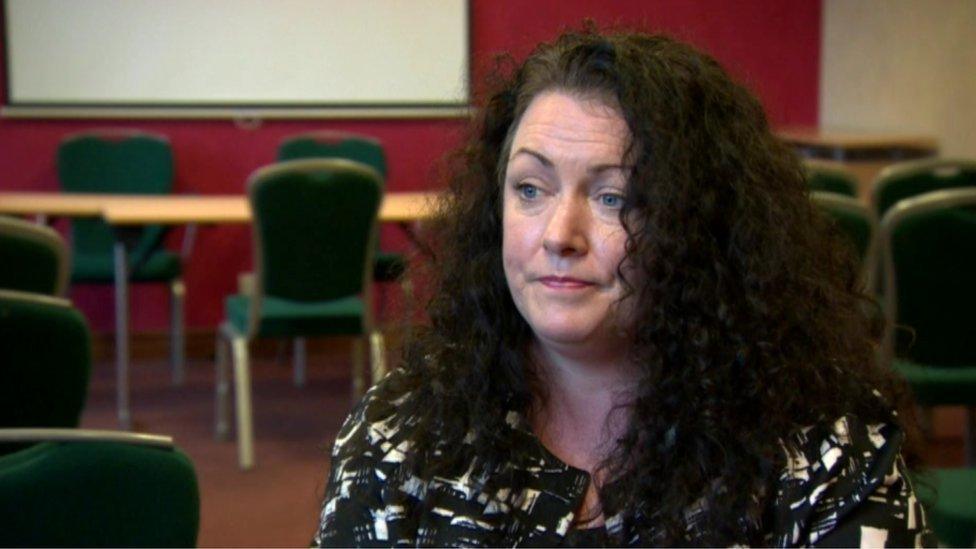Prostitution law: NI leaders intervene in sex worker's court challenge
- Published

Sex worker Laura Lee is trying to get the new law struck down, arguing that criminalising those who pay for sex puts prostitutes in greater danger
Northern Ireland's first and deputy first ministers have intervened in a sex worker's court challenge to a new law that makes paying for sex illegal.
The legislation came into effect in June 2015, but it is now the subject of a High Court challenge from Dublin-born sex worker and law graduate, Laura Lee.
The case was adjourned on Friday after a last-minute challenge on behalf of Arlene Foster and Martin McGuinness.
The judge said there was no clear explanation for the late intervention.
'Highly improper'
The court heard Attorney General John Larkin had been instructed to launch the challenge on behalf of the Office of the First and Deputy First Ministers (OFMDFM).
Lawyers for Ms Lee complained to the judge that the "grossly late" move was a "highly improper and unorthodox" attempt to stop the case advancing to a full hearing.
Northern Ireland was the first and only part of the UK to pass a law that made it a crime to pay for sexual services, shifting criminal responsibility from prostitutes to their clients.
The legislation was brought before Stormont by the Democratic Unionist Party peer, Lord Morrow, as part of his Human Trafficking and Exploitation Bill.
Ms Lee, 38, has campaigned against it, claiming it would drive prostitution underground and put sex workers at greater risk of violence from clients.
Opponents of the law claim it makes it increasingly difficult for prostitutes to screen customers who may use fake names and disposable phones.
'Deeply concerned'
The judge adjourned the case until next month, but requested full reasons for the intervention, which was made on the eve of the hearing.
"I accept that this application made on behalf of the attorney general, who is acting for the first minister and deputy first minister, has not been accompanied with any clear or cogent explanation as to the course of events," he said.
Ms Lee's judicial review challenge is directed at the Department of Justice (DOJ), led by Justice Minister David Ford, who also opposed the criminalisation of those who pay for prostitution.
A barrister representing the DOJ confirmed it was not opposing Ms Lee's application for a judicial review of the new law, on the basis that an arguable case had been established.
However, Ms Lee's legal team criticised the attempt by another Stormont department to become involved in the case.
"My client is deeply concerned at the proposed, grossly late intervention on the part of the Office of First Minister and Deputy First Minister," her lawyer told the court.
"We say it's highly improper and unorthodox, effectively OFMDFM are seeking to resist the grant of leave against the Department of Justice."
The court heard the OFMDFM challenge raised a potential devolution issue and the judge allowed the department an opportunity to explain the late move.
- Published1 June 2015
